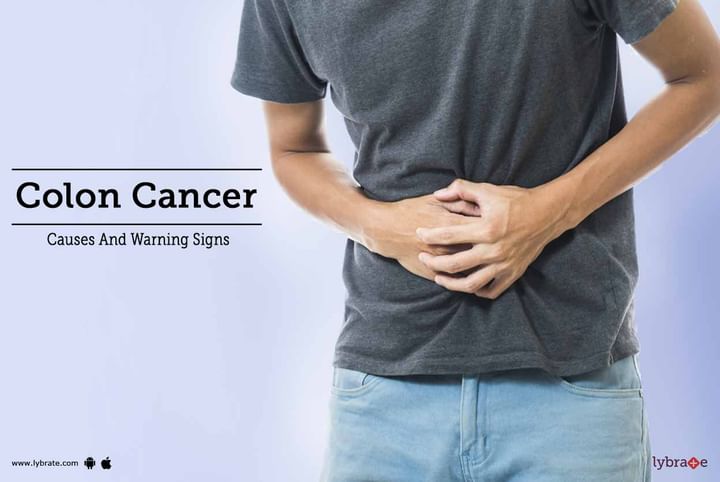Colon Cancer - Causes And Warning Signs
Colon cancer is cancer that starts in the large intestine (colon). In most cases it begins as a non-malignant group of cells called polyps, which may turn cancerous over time. After the formation of the malignant tumors, the cancerous cells may spread to other parts of your body through lymph and blood channels. It can occur together with rectal cancer and is known as colorectal cancer.
Causes of Colon Cancer
The occurrence of colon cancer may depend on the presence of precancerous polyps in the colon. Adenomas polyps may turn cancerous, but are removable through colonoscopy. Hyperplastic polyps rarely become cancerous, whereas inflammatory polyps may become cancerous after the inflammation of the colon.
Other risk factors that may influence the occurrence of colon cancer are,
- Genetics: about 20% colon cancers are thought to be caused by mutation of the genes.
- Age: those over the age of 50 are more likely to develop colon cancer, though now it is also increasingly affecting younger people.
- Lifestyle: it is more likely to affect people who lead a sedentary lifestyle, smoke tobacco or are obese.
- Diet: it is more likely to affect those whose diets are high in red meats, calories, and fat while being low in fiber. Alcohol consumption may also affect its occurrence.
- Medical conditions: people who suffer from diabetes, acromegaly (growth hormone disorder) and colitis etc, may also be prone to develop colon cancer.
Warning Signs of Colon Cancer
Colon cancer generally goes undetected in the early stages. The symptoms vary with the location, spread and size of the tumor. In the earlier stages of cancer, most people experience no symptoms, but in the later stages they may experience one or more of these symptoms:
- Change in bowel habits such as diarrhea, constipation or change in consistency of stools; lasting more than a month
- Blood in stool or bleeding from the rectum
- Pain during passage of stool
- Pain, cramps or gas in the abdominal region
- Frequent urges to pass stool
- Weakness
- Irritable bowel syndrome
- Anemia
- Unexpected weight loss
However, these symptoms may not necessarily indicate colon cancer. They can occur in the absence of colon cancer too. It is confirmed by colonic biopsy and histopathological examination. If you wish to discuss about any specific problem, you can consult a general physician.



+1.svg)
